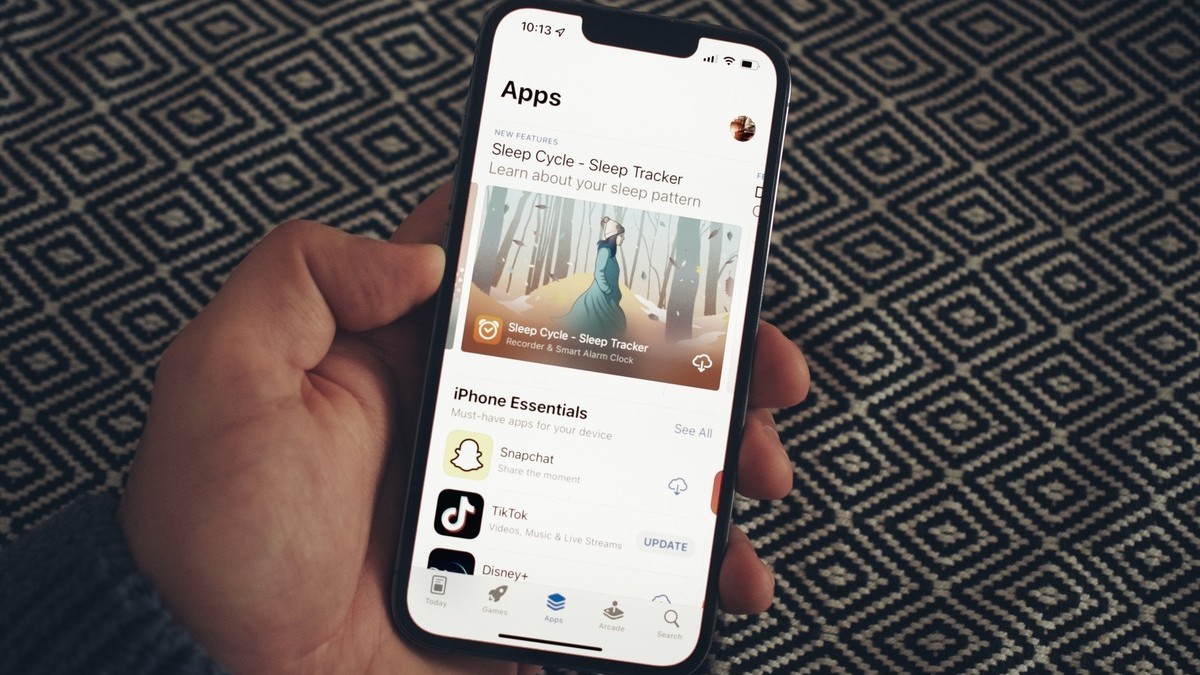The iPhone's App Store is riddled with fake reviews, but Android's even worse
A huge number of the top 100 apps are using fake reviews.

A huge number of the top 100 iPhone apps in the App Store feature suspicious reviews, with Android's Google Play Store faring even worse, according to a new report.
A study into the patterns of reviews found that 17 of the top 100 apps in popular App Store categories were found to have reviews that appear to have been bought.
When the same study looked at Google's Play Store, that number skyrocketed to 25, suggesting one in four apps' review scores can't be trusted.
Bought and paid for
The study, carried out by Which?, involved conducting an analysis of more than 18,000 reviews for apps that it knew were fake. Then it looked at apps from the same categories that it knew had legitimate reviews, creating a model that would allow it to estimate the behavior of fake reviews and more easily spot them as a result.
The results made for interesting reading:
"Apps using paid-for reviews had a significantly higher proportion of five-star reviews – 60.5% of reviews for the dating app were five stars, compared to just 9.7% for Tinder," the report says. "For the health app, five-star reviews accounted for 45.8% of reviews, while Garmin had just 6%. This pattern is typical wherever you find review manipulation."
The study also found that fake reviews were often added in batches, making them easier to spot. Legitimate reviews instead rolled in more organically, as you might expect.
Master your iPhone in minutes
iMore offers spot-on advice and guidance from our team of experts, with decades of Apple device experience to lean on. Learn more with iMore!
"We noted clusters of four and five-star reviews over a few days for the apps we knew were buying reviews, then very few reviews for weeks or months before another big spike – likely coinciding with the app employing a review broker," Which noted. "On the well-known apps we looked at, reviews trickled in consistently with very few big spikes in activity. "
Looking at two specific categories — games and health apps — Which? found that things were particularly bad on Google's Play Store. 15% of the top 100 games in the App Store were deemed to have suspicious reviews, while that number rose to 22% in the Play Store.
Things weren't much better when looking at the fitness section, with 17% of apps having suspicious review activity. That number was 25% in Google's store. Fitness apps are huge on Apple's platforms, but even the best Apple Watch can't protect you from a developer buying fake reviews.
Ultimately, it's difficult for customers to know when a review is legitimate or not, but anything that has a five-star review with little explanation is worth being suspicious of at the very least.

Oliver Haslam has written about Apple and the wider technology business for more than a decade with bylines on How-To Geek, PC Mag, iDownloadBlog, and many more. He has also been published in print for Macworld, including cover stories. At iMore, Oliver is involved in daily news coverage and, not being short of opinions, has been known to 'explain' those thoughts in more detail, too. Having grown up using PCs and spending far too much money on graphics card and flashy RAM, Oliver switched to the Mac with a G5 iMac and hasn't looked back. Since then he's seen the growth of the smartphone world, backed by iPhone, and new product categories come and go. Current expertise includes iOS, macOS, streaming services, and pretty much anything that has a battery or plugs into a wall. Oliver also covers mobile gaming for iMore, with Apple Arcade a particular focus. He's been gaming since the Atari 2600 days and still struggles to comprehend the fact he can play console quality titles on his pocket computer.
